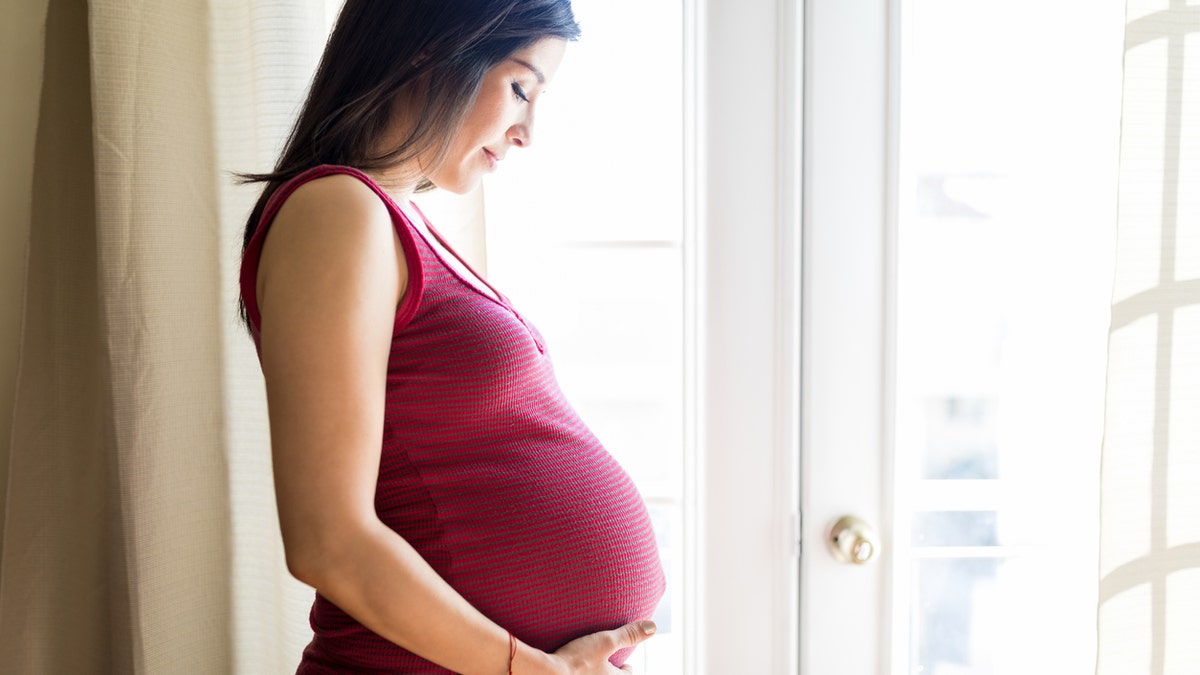Fox News Flash top headlines for December 30
Fox News Flash top headlines are here. Check out what's clicking on Foxnews.com.
First comes love, then comes marriage, then comes the baby (eventually) in the baby carriage, thanks to COVID-19.
Pregnant women who are looking forward to their dream nursery may be waiting a while, according to a recent New York Times report.

File photo of a pregnant woman. (iStock)
Despite a declining birth rate in the United States, the report noted the COVID-19 pandemic has caused long frustrating delays for baby items like cribs, car seats, and strollers, and given there were more than 3.6 million births in this country in 2020, the delays are likely to continue.
Some products that would typically arrive in eight to 10 weeks now sometimes arrive in twice the time – with potential for additional delays depending on supply chain issues, per the report.
Maisonette, an online baby marketplace that works with approximately 1,000 vendors, told the Times that the product delays are mostly coming from Asia and Peru, where Pima cotton for baby apparel is made.

Doctor preparing a pregnant woman for vaccination. Pregnant woman getting a covid-19 vaccine. (istock)
Other sellers blame the supply chain, including the lack of parts or shipping containers, port delays, trucker shortages as well as logistical challenges once the items arrive, the report added.
SUPPLY CHAIN EXPERTS WEIGH IN ON CAUSES, SOLUTIONS FOR BACKLOG
Joe Shamie, president of Delta Children, a popular seller of children’s furniture sold at Walmart and Pottery barn, said normal production of a continuously sold item typically took around 45 to 60 days, then an additional 12 days of travel across the ocean to reach California, but now it takes a couple months just for the transport of the items to the United States.
Unlike other items that are carried in the global supply chain, newborn items are unique because they have a literal due date, but further complicating matters, some superstitious parents-to-be are reluctant to purchase baby items so far in advance to account for the long delays, per the Times report.

Pregnant woman are using nail art to show off their ultrasounds. (iStock)
This has led to higher prices and a robust ‘hand-me-down market,’ adding stress and anxiety to the already emotionally challenging environment for the parents-to-be. "These are pregnant women that are all having their babies," said Lauren Logan, the owner of the Juvenile Shop, a family-run baby retailer in southern California.
"They are hormonal, but they are pregnant — they want their stuff. I don’t blame them. I want their stuff for them."
Logan, who has worked in the store since 1979, has resorted to loaning floor models, furniture, chairs, and car seats to help bridge the delay despite the cost to her business.
After canceling a crib order from Pottery Barn Kids due to long delays, Ms. Gina Catallo-Kokoletsos, who lives in California, keeps things in perspective.
CLICK HERE TO GET THE FOX NEWS APP
"I knew none of it was the end of the world," she told the Times. "It just kind of gets frustrating after a while."










































